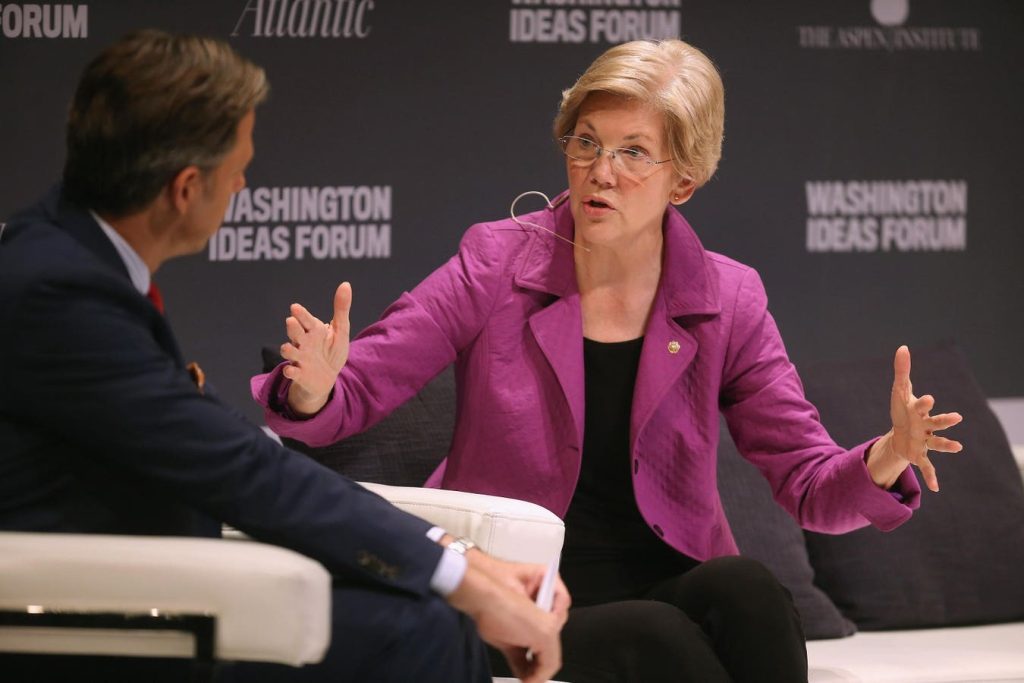Trump’s Intel Investment: A New Era of State-Industry Relations or a Raw Deal for Americans?
President Trump’s recent announcement of an $8.9 billion government stake in Intel marks a significant shift in how the U.S. approaches relationships between the state and private industry. This unusual move, more reminiscent of economic strategies seen in communist countries than traditional American capitalism, has drawn sharp criticism from Senator Elizabeth Warren, who has formally questioned whether this deal serves the public interest or merely benefits corporate executives at taxpayer expense.
The circumstances surrounding this investment raise eyebrows about the nature of dealmaking in the current administration. Just weeks before the announcement, Trump had publicly called for Intel CEO Lip-Bu Tan’s resignation, claiming he had invested in companies with ties to the Chinese military. This hostility transformed remarkably quickly after Tan visited the White House for a meeting. Following this encounter, Trump’s rhetoric shifted dramatically from demanding Tan’s immediate resignation to praising his “amazing story,” culminating in the multibillion-dollar investment announcement less than two weeks later. This rapid reversal exemplifies a pattern of the President’s self-proclaimed dealmaking approach, which has produced various agreements with executives across industries that often lack substantive details or clear public benefits.
Senator Warren, leveraging her background as a Harvard Law School contracts professor, has demanded transparency regarding the Intel deal’s specifics. Her inquiry to Commerce Secretary Howard Lutnick seeks clarity on fundamental aspects of the agreement: who negotiated it, under what legal authority they operated, how it affects Intel’s existing public obligations, and what protections exist to shield taxpayers and workers from potential corporate mismanagement. These questions highlight a stark contrast with previous approaches to government support for the semiconductor industry. In 2022, Warren and Senator Bernie Sanders had proposed converting government grants to Intel through the CHIPS Act into equity stakes, but with significant strings attached – prohibitions on stock buybacks, requirements to maintain U.S. jobs, and provisions supporting labor rights. The Biden administration’s CHIPS Act funding similarly required Intel to invest over $100 billion in new fabrication facilities across America. The Trump deal, by comparison, appears to impose no comparable obligations on Intel in exchange for the substantial public investment.
Beyond concerns about lack of corporate accountability, Warren argues that the investment itself represents questionable financial judgment. She characterizes Intel as “a failing company,” pointing to its 60% stock decline last year as evidence of fundamental business challenges. Intel itself has acknowledged these difficulties and has even suggested that closer U.S. government ties might create “adverse effects” for its business prospects. This acknowledgment reveals a troubling contradiction in the investment’s strategic logic: Intel’s primary market in recent years has been China, where the company has already faced increasing resistance due to its American connections. Direct U.S. government investment seems likely to accelerate Chinese government directives for its offices and state-affiliated businesses to reduce reliance on Intel technology, potentially undermining the very company taxpayers are now substantially invested in. Further complicating matters, Intel recently faced criticism after Forbes revealed the company was advertising partnerships with Chinese firms that the U.S. government had sanctioned for human rights violations – raising questions about corporate governance and alignment with American values and interests.
Senator Warren’s scrutiny of the Intel deal reflects her longstanding expertise in consumer protection and opposition to what she characterizes as self-dealing in the Trump administration. As the founder of the Consumer Financial Protection Bureau – an agency recently shuttered by Trump’s Office of Management and Budget director – Warren has consistently positioned herself as an advocate for transparency in government financial dealings. Her letter to Secretary Lutnick emphasizes that public investments “must be obtained and managed in a transparent and strategic fashion, not the chaotic special interest-favoring approach taken by the President.” This critique points to broader concerns about the administration’s approach to economic policy, suggesting that deals like the Intel investment may prioritize relationships with corporate executives over strategic national interests or taxpayer protection.
The Intel investment ultimately represents a critical juncture in American industrial policy, raising fundamental questions about the proper relationship between government and private enterprise. While government support for strategic industries like semiconductor manufacturing enjoys bipartisan support in principle, the specifics matter tremendously. The contrast between previous approaches with clear public benefits and accountability measures versus the current arrangement highlights divergent visions of how public resources should be deployed. As this deal moves forward, the responses to Warren’s inquiries may reveal whether this investment represents a thoughtful strategic partnership that benefits American workers and taxpayers or simply another example of corporate welfare that privatizes gains while socializing risks. The outcome will shape not just Intel’s future but potentially the template for how government and industry collaborate in an era of increasing global technology competition.


